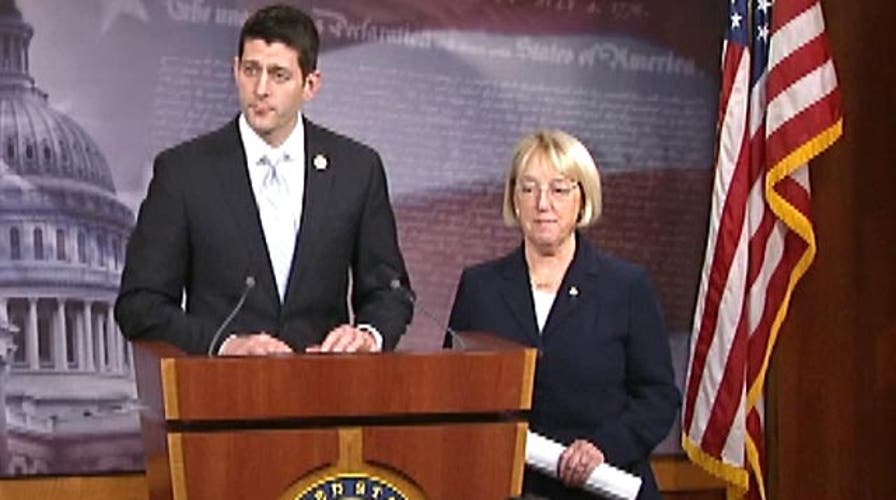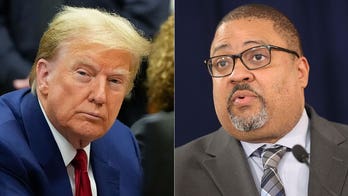Congressional negotiators on Tuesday announced a tentative budget deal that would avoid a partial government shutdown, but also begin to unravel hard-fought spending cuts.
The lead negotiators -- Senate Budget Committee Chairwoman Patty Murray, D-Wash., and House Budget Committee chairman Paul Ryan, R-Wis. -- detailed the specifics of the proposal at an evening press conference.
“I’m proud of this agreement,” Ryan said. “It reduces the deficit—without raising taxes. And it cuts spending in a smarter way. It’s a firm step in the right direction, and I ask all my colleagues in the House to support it.”
But the measure could face a tough climb, particularly in the House which is expected to take up the bill first. Ahead of Tuesday’s announcement, fiscal conservatives raised alarm that lawmakers were proposing to roll back sequester cuts.
The proposal would restore about $63 billion in funding that had been cut by the so-called sequester. Officials said the increases would be offset by a variety of spending reductions and increased fees elsewhere in the budget totaling about $85 billion over a decade, leaving enough for a largely symbolic deficit cut of $23 billion over the next decade.
However, fiscal conservatives warned that lawmakers were simply trading increased spending now for “promises” of cuts sometime in the future.
While Ryan predicted that conservatives would support the bill and GOP leaders praised the negotiators, Sen. Marco Rubio, R-Fla., came out against it.
“In the short run, this budget also cancels earlier spending reductions, instead of making some tough decisions about how to tackle our long-term fiscal challenges caused by runaway Washington spending,” he said.
President Obama praised the deal for replacing parts of the sequester cuts, which he said "have harmed students, seniors, and middle-class families and served as a mindless drag on our economy over the last year."
Calling the deal "balanced," Obama said he also is pleased Congress was able to break the cycle of crisis-driven decision-making to reach a compromise.
"And because it's the first budget that leaders of both parties have agreed to in a few years, the American people should not have to endure the pain of another government shutdown for the next two years," he said.
The deal sets discretionary spending levels at just over $1 trillion, which is higher than the hard-fought level of $967 billion set in a 2011 budget pact.
One senior House Republican source predicted to Fox News that the party would have the votes to pass the deal, though they speculated the GOP may lose a “healthy chunk” on their side.
Both Murray and Ryan expressed confidence the deal would pass as well, and called upon their colleagues to do so.
“I'm confident we won't have 100 percent of the Senate or the House,” Murray said. “But I want people to know this Congress can work.”
The hesitation, and opposition, on both sides, though, indicates that congressional leaders still have a lot of convincing to do. Congress has until Jan. 15 to pass a new budget or they will trigger another partial government shutdown.
House Speaker John Boehner claimed Tuesday he was "optimistic" about the chances a deal would materialize, but the speaker may be reluctant to once again try to pass a bill that a majority of Republican members do not support. He resorted to passing a budget bill with a majority of Democrats in October, in order to end the partial shutdown.
The automatic cuts are the consequence of Washington's failure to follow up a 2011 budget pact with further deficit cuts. They would carve $91 billion from the day-to-day budgets of the Pentagon and domestic agencies when compared with sending limits set by the hard-fought 2011 budget agreement.
Fox News' Chad Pergram and The Associated Press contributed to this report





